-
Programme 1
The Unfinished Threat and The New Normal
-
Friday, 24 July 2020
The Birds
Alfred Hitchcock. The Birds
USA, 1963, colour, original version in English with Spanish subtitles, 120’
Presented by Ana Useros, co-curator of the series.With a sound-art performance prior to the screening by Juan Carlos Blancas.
The summer cinema opens with an experimental piece by the sound artist Juan Carlos Blancas who will present an acoustic landscape of sounds related to experiences lived during confinement, in dialogue with the film that is screened afterwards and the natural space of the garden.
Shut in our homes we looked in disbelief at an outside with the exact same appearance, albeit empty, as the previous day. Hitchcock’s plague is portrayed through an equally anodyne element — the birds that share a habitat with humans, almost inexplicably, force the film’s characters to confine themselves in a normative family structure, where they have no choice but to question, judge and, with time and luck, perhaps accept one another. The menacing ending, which seems to tell us that, from now on, we cannot hide from ourselves, does nothing if not reinforce the film’s paradoxically humanist message.
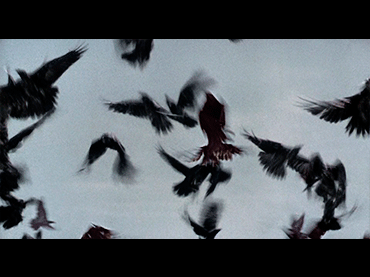
-
Saturday, 25 July 2020
Mon oncle (My Uncle)
Jacques Tati. Mon oncle (My Uncle)
France, 1958, colour, original version in French with Spanish subtitles, 116’In Tati’s films characters resignedly witness the appearance of new artefacts, rules and environments, whether it be the “American method” of delivering letters in Jour de fête (1949) or the inhuman constructions of Playtime (1967). Humour comes from these changes being accepted uncritically and from the human body having to contort and come apart to adapt to them. As Tati’s filmography expanded, popular culture and proximity disappeared and his characters started to wander through this new dehumanised world. Yet, in My Uncle, somewhat forgotten today but Tati’s most popular film for a period of time, there is still a contrast between the old world and the new, between human artefacts and the aspiration of hygiene and full disinfection, a counterpoint tinged with nostalgia which, in its own right, fires a warning to those of us tempted to romanticise the pre-pandemic world.
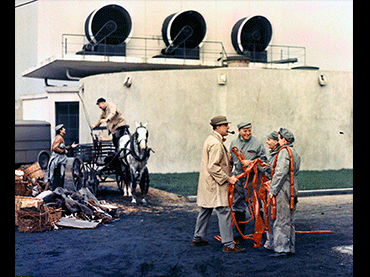
-
Programme 2
The Exploitation of Nature
-
Friday, 31 July 2020
Un cierto porvenir (A Certain Future) / Il pianeta azzurro (The Blue Planet)
David Varela. Un cierto porvenir (A Certain Future)
Spain, 2020, colour, original version in Spanish, 12’Franco Piavoli. Il pianeta azzurro (The Blue Planet)
Italy, 1982, colour, original version without dialogue, 88’Presented by film-maker and programmer David Varela, director of Documenta Madrid, with Andrea Guzmán, from 2017 to 2019.
The Blue Planet engulfs us in the cyclical time of the seasons and the natural landscape in all its splendour, with the human figure one detail in a system of multiple lives and species. In this historical debut feature, lauded by Bertolucci and Tarkovsky, Piavoli composed a sensorial symphony that celebrates life through the passing of time, demonstrating another relationship with nature, at once ethical and beautiful, where human beings are simply one among many species. David Varela, meanwhile, draws from Piavoli to devise a dystopia on ecological disaster that straddles factual realism and fictional science. The short film, shot during the weeks of lockdown, is a disturbing account of extinction.
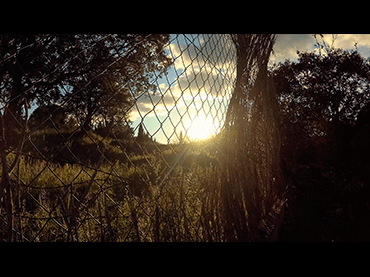
-
Saturday, 1 August 2020
Erde (Earth)
Nikolaus Geyrhalter. Erde [Tierra]
Austria, 2019, colour, original version in English, German and Spanish with Spanish subtitles, 115’Earth is an analytical and bleak journey through landscapes that demonstrate man’s brutality against nature across the globe — exploitation denoting the radical alteration of the environment and mass-scale extraction without restraint or any semblance of sustainability. The gaze towards the colossal machinery of transformation is intertwined with interviews with the workers operating it: “it’s a war against nature” or “we humans have exceeded all limits”, are some of their declarations. The film constitutes one of the major productions on extractivism, an intensive model of development underpinning our way of life and placing it in a serious existential crisis.
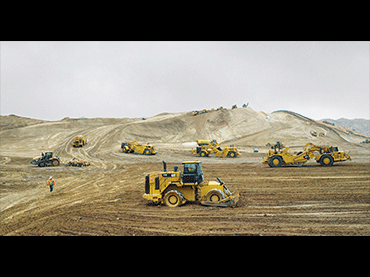
-
Programme 3
Mercantile Logic and Inconspicuous Care
-
Friday, 7 August 2020
The Pied Piper
Jacques Demy. The Pied Piper
UK and USA, 1972, colour, original version in English with Spanish subtitles, 86’Presented by writer and editor Silvia Nanclares, author of the autobiographical novel Quién quiere ser madre (Alfaguara, 2017) and the illustrated children’s books La siesta (with Equipo Elático, Kókinos, 2006) and Al final (with Miguel Brieva, Kókinos, 2010).
The legend of the pied piper tells how a rat-catcher, able to attract these rodents with the sound of his flute, leads away the children of Hamelin as revenge against the non-payment of his services. Jacques Demy’s version roots the legend in history, situating it in the context of the Black Death in 1349 and the ensuing persecution and scapegoating of the Jewish population. Yet it also roots it in the present time of its production, in the 1968 anti-militarism movement and student uprisings, turning the abduction of childhood into a kind of liberation. Could we interpret it in our present as an allegory for an unprecedented health crisis that has deemed childhood to be a “vector of infection” and in which economic reasons surpass health reasons?
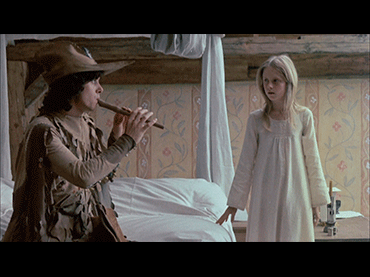
-
Saturday, 8 August 2020
La camarista (The Chambermaid)
Lila Avilés. La camarista (The Chambermaid)
Mexico, 2020, colour, original version in Spanish, 102’Presented by activist and domestic worker Rafaela Pimentel, founder of the collective Territorio Doméstico, which works to defend the rights of female domestic workers, and María Fuentes, a cleaner at Madrid’s Gregorio Marañón Hospital and a member of the platform against the privatisation of the cleaning service in the same hospital.
The first feature-length film by photographer Lila Avilés, La camarista (The Chambermaid) is a detailed account, framed with much tact and intelligence, of the working hours of a young chambermaid in luxury accommodation in Mexico City. A portrait of an inquisitive, determined and ambitious woman is sketched through her silence, gestures and the expression of her career aspirations; conversely, the world of the clients is depicted with surprising complexity bearing in mind that they are reflected in the objects they leave behind, the level of untidiness or fleeting relationships. That which is normally visible becomes invisible and the invisible presence of feminised and precarious work moves into the foreground.
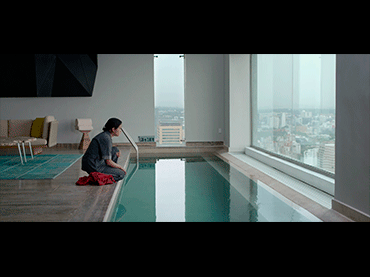
-
Programme 4
Caring for Life and Caring for Death
-
Friday, 14 August 2020
Moartea domnului Lăzărescu (The Death of Mr. Lazarescu)
Cristi Puiu. Moartea domnului Lăzărescu (The Death of Mr. Lazarescu)
Romania, 2005, colour, original version in Romanian with Spanish subtitles, 144’This film explores the collapse of the healthcare system via the odyssey of a terminally ill man who fails to find comfort in any hospital. Mr. Lazarescu is an old man who lives alone with his three cats. One night, he feels unwell and calls an ambulance, but that same night a major accident has paralysed every hospital in the city. From dusk to dawn, the dying man and his nurse grapple with a chaotic and disjointed healthcare system, with its bureaucracy, prejudices and corruption. The tragedy and abandonment of old people at the height of the pandemic and the boundless devoltion of healthcare staff are reflected in a black comedy that is also a portrait of post-Communist Romanian society.
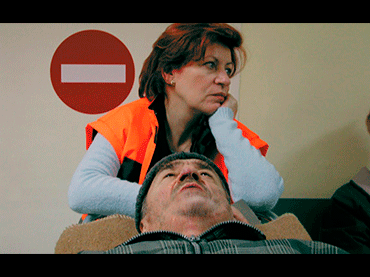
-
Saturday, 15 August 2020
Obit. Life on Deadline
Vanessa Gould. Obit. Life on Deadline
USA, 2017, colour, original version in English with Spanish subtitles, 95’
Presented by Susana Albarrán Méndez, social communicator, Vallecas neighbor and collaborator of El Salto Diario.Obit. Life on Deadline is a passionate documentary on the obituary section in The New York Times, the only newspaper in the world to devote a whole section to the deceased, on a par with sports or the economy. The film documents obituary reporters’ meticulous process of researching and writing, the archive system and the paper’s policy on not only publishing the mandatory and customary obituaries of stars, but also articles on anonymous people who have made an unsung contribution to humanity. The film underscores the footprint left by every life and its importance and right to be remembered, while also symbolising an homage to a certain way of understanding journalism: a humble, obsessive task, investing however long is needed to serve the truth.
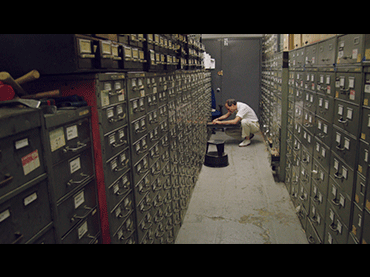
-
Programme 5
They Wanted Us in Solitude, They Will Have Us in Common
-
Friday, 21 August 2020
The Brother from Another Planet
John Sayles. The Brother from Another Planet
USA, 1984, colour, original version in English with Spanish subtitles, 108’This film narrates the odyssey of an alien lost in Harlem, pursued by immigration bounty hunters from outer-space, and focuses on the difficulties for the main character to communicate and his process of integrating from a place of difference in a strange yet welcoming community. Using imagery of slave escapes, science fiction and urban B-movies, and with an intelligent script flavoured with languid humour, John Sayles pieces together a fable on migration, racism, the difficulties of interacting and fear of the unknown. The film also constitutes a tale of the hope of mutual support among marginalised communities. The Brother from Another Planet “is not a blueprint on how to save the world, but a warm, humane guide on how to live in it,” the writer Jessica Ritchey remarked.
With a prior screening of the intervention by feminist economist Amaia Pérez Orozco in the Congress of Deputies, within the framework of the Commission for Economic and Social Reconstruction, 2020. An exercise of political imagination and a guide to build a fair socioeconomic structure with care and the support of lives at the centre.
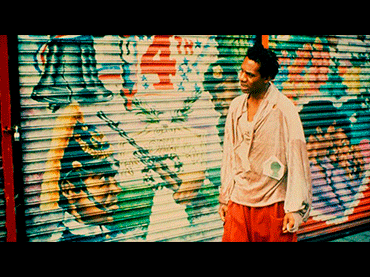
-
Saturday, 22 August 2020
La libertad / Nacer de nuevo (To Be Born Again)
Laura Huertas Millán. La libertad
Colombia and Mexico, 2017, colour, original version in Spanish, 29’Marta Rodríguez. Nacer de nuevo (To Be Born Again)
Colombia, 1986–87, colour, original version in Spanish, 30’Closing concert by Julián Mayorga.
Two Colombian film-makers are at the heart of this session devoted to resilience and the will to live despite catastrophe. In La libertad (Freedom), artist and film-maker Laura Huertas Millán shines a light on two weavers from Mexico who make their looms using a Pre-Hispanic ancestral technique; in doing so, the two women initiate an organic relationship with time, history, nature and, as the title of this short film alludes to, with freedom itself. Huertas Millán thus combines the rigour of documentary with a beautiful and poetic visual work.
In Nacer de nuevo (To Be Born Again), Marta Rodríguez recounts how, in November 1985, the eruption of the Nevado del Ruiz volcano in Colombia killed 25,000 people and left another 5,000 homeless. The residents were temporarily offered shelter in Red Cross tents made available in a stadium, until they were relocated in new houses with their corresponding mortgage. A year later, María Eugenia and Carlos, deemed too old by a real estate company keen to safeguard its profits, continue living in the same tents. The film-maker captures the unwavering will of the old woman, and her humour and generosity, in a film that extols, above all else, the courage to keep on living, and even the courage sometimes required to die.
After the film screening, a concert from Colombian musician Julián Mayorga, whose work remixes popular sounds such as cumbia and vallenato, brings this summer film series to a conclusion.
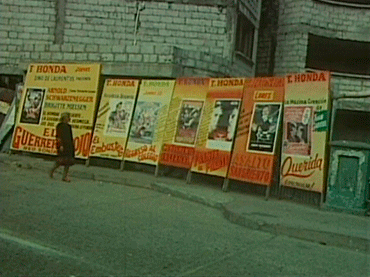
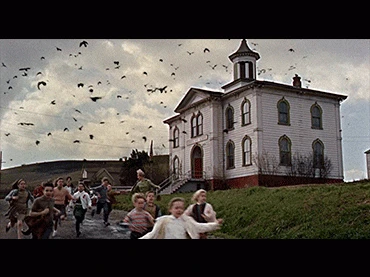
Held on 24, 25, 31 Jul, 01, 07, 08, 14, 15, 21, 22 Aug 2020
Uncertain Times is a film series stretching from early May to late August and programmed in three blocks. From the imagery and possibilities assayed in film and video, the season seeks to ignite reflection and a search for answers in light of the pandemic and social emergency situation.
Uncertain Times III. Sustaining Lives, the third instalment comprising the summer cinema, is devoted to possible futures in this new period. Held for the first time in the Sabatini Garden and split into two themed weekly sessions, it orbits around the world we are gingerly returning to and the challenges and questions it raises. What role will care now play in social hierarchy? What will happen to historically marginalised people in this new reconstruction of daily life? How can we mend the social divide that this health crisis has compounded? In the films that make up this new edition of the outdoor cinema, we gain glimpses into children relegated to disruptive objects; invisible women who silently clean and disinfect for our peace of mind; female healthcare workers who cover, through overexertion, the flaws of a health system designed in line with regulations of economic profitability; journalists who try to give every lost life value and its place in memory; and communities that practice the daily pleasure of knowing your neighbour and lending them a hand. These situations, clearly nothing new, are presented as constants in this old new post-COVID world to which we are returning.
Without denying the severity of the situation or turning a blind eye to the difficulties and obstacles we encounter in the fight for social justice, the series also attempts to discover some kind of hope in the small acts of resistance. It has been organised in collaboration with Museo Situado, a network that the Reina Sofía intertwines with collectives and associations from its urban environment in Madrid’s Lavapiés neighbourhood. Along with the screenings, the program includes different presentations, an opening sound-art performance by Juan Carlos Blancas and a closing concert by Julián Mayorga.
Curators
Ana Useros and Chema González
Force line
Contemporary Disturbances
Organised by
Museo Reina Sofía
With the sponsorship of

Collaboration
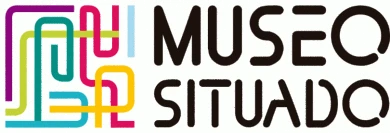

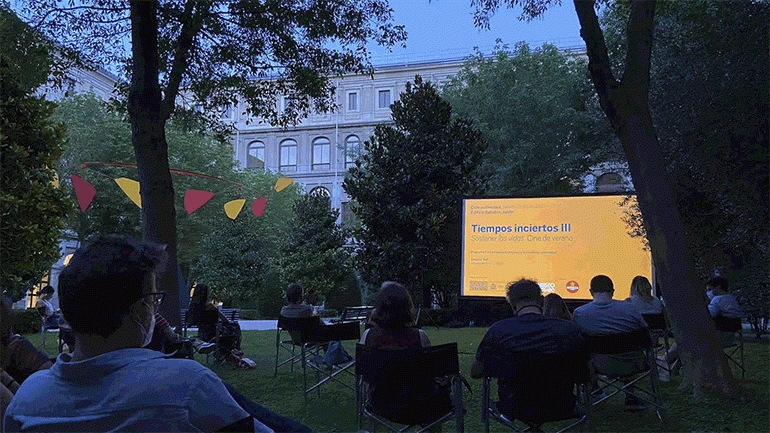
Más actividades
![Tracey Rose, The Black Sun Black Star and Moon [La luna estrella negro y negro sol], 2014.](https://recursos.museoreinasofia.es/styles/small_landscape/public/Obra/AD07091_2.jpg.webp)
On Black Study: Towards a Black Poethics of Contamination
Monday 27, Tuesday 28 and Wednesday 29 of April, 2026 – 16:00 h
The seminar On Black Study: Towards a Black Poethics of Contamination proposes Black Study as a critical and methodological practice that has emerged in and against racial capitalism, colonial modernity and institutional capture. Framed through what the invited researcher and practitioner Ishy Pryce-Parchment terms a Black poethics of contamination, the seminar considers what it might mean to think Blackness (and therefore Black Study) as contagious, diffuse and spreadable matter. To do so, it enacts a constellation of diasporic methodologies and black aesthetic practices that harbor “contamination” -ideas that travel through texts, geographies, bodies and histories- as a method and as a condition.
If Blackness enters Western modernity from the position of the Middle Passage and its afterlives, it also names a condition from which alternative modes of being, knowing and relating are continually forged. From within this errant boundarylessness, Black creative-intellectual practice unfolds as what might be called a history of touches: transmissions, residues and socialities that unsettle the fantasy of pure or self-contained knowledge.
Situated within Black radical aesthetics, Black feminist theory and diasporic poetics, the seminar traces a genealogy of Black Study not as an object of analysis but as methodological propositions that continue to shape contemporary aesthetic and political life. Against mastery as the horizon of study, the group shifts attention from what we know to how we know. It foregrounds creative Black methodological practices—fahima ife’s anindex (via Fred Moten), Katherine McKittrick’s expansive use of the footnote, citation as relational and loving labour, the aesthetics of Black miscellanea, and Christina Sharpe’s practices of annotation—as procedures that disorganise dominant regimes of knowledge. In this sense, Black Study is approached not as a discrete academic field but as a feel for knowing and knowledge: a constellation of insurgent practices—reading, gathering, listening, annotating, refusing, world-making—that operate both within and beyond the university.
The study sessions propose to experiment with form in order to embrace how ‘black people have always used interdisciplinary methodologies to explain, explore, and story the world.’ Through engagements with thinkers and practitioners such as Katherine McKittrick, C.L.R. James, Sylvia Wynter, Christina Sharpe, Fred Moten, Tina Campt, Hilton Als, John Akomfrah, fahima ife and Dionne Brand, we ask: What might it mean to study together, incompletely and without recourse to individuation? How might aesthetic practice function as a poethical intervention in the ongoing work of what Sylvia Wynter calls the practice of doing humanness?

Intergenerationality
Thursday, 9 April 2026 – 5:30pm
This series is organised by equipoMotor, a group of teenagers, young people and older people who have participated in the Museo Reina Sofía’s previous community education projects, and is structured around four themed blocks that pivot on the monstrous.
The third session gazes at film as a place from which to dismantle the idea of one sole history and one sole time. From a decolonial and queer perspective, it explores films which break the straight line of past-present-future, which mix memories, slow progress and leave space for rhythms which customarily make no room for official accounts. Here the images open cracks through which bodies, voices and affects appear, disrupting archive and questioning who narrates, and from where and for whom. The proposal is at once simple and ambitious: use film to imagine other modes of remembering, belonging and projecting futures we have not yet been able to live.

Remedios Zafra
Thursday March 19, 2026 - 19:00 h
The José Luis Brea Chair, dedicated to reflecting on the image and the epistemology of visuality in contemporary culture, opens its program with an inaugural lecture by essayist and thinker Remedios Zafra.
“That the contemporary antifeminist upsurge is constructed as an anti-intellectual drive is no coincidence; the two feed into one another. To advance a reactionary discourse that defends inequality, it is necessary to challenge gender studies and gender-equality policies, but also to devalue the very foundations of knowledge in which these have been most intensely developed over recent decades—while also undermining their institutional support: universities, art and research centers, and academic culture.
Feminism has been deeply linked to the affirmation of the most committed humanist thought. Periods of enlightenment and moments of transition toward more just social forms—sustained by education—have been when feminist demands have emerged most strongly. Awareness and achievements in equality increase when education plays a leading social role; thus, devaluing intellectual work also contributes to harming feminism, and vice versa, insofar as the bond between knowledge and feminism is not only conceptual and historical, but also intimate and political.
Today, antifeminism is used globally as the symbolic adhesive of far-right movements, in parallel with the devaluation of forms of knowledge emerging from the university and from science—mistreated by hoaxes and disinformation on social networks and through the spectacularization of life mediated by screens. These are consequences bound up with the primacy of a scopic value that for some time has been denigrating thought and positioning what is most seen as what is most valuable within the normalized mediation of technology. This inertia coexists with techno-libertarian proclamations that reactivate a patriarchy that uses the resentment of many men as a seductive and cohesive force to preserve and inflame privileges in the new world as techno-scenario.
This lecture will address this epochal context, delving into the synchronicity of these upsurges through an additional parallel between forms of patriarchal domination and techno-labor domination. A parallel in which feminism and intellectual work are both being harmed, while also sending signals that in both lie emancipatory responses to today’s reactionary turns and the neutralization of critique. This consonance would also speak to how the perverse patriarchal basis that turns women into sustainers of their own subordination finds its equivalent in the encouraged self-exploitation of cultural workers; in the legitimation of affective capital and symbolic capital as sufficient forms of payment; in the blurring of boundaries between life and work and in domestic isolation; or in the pressure to please and comply as an extended patriarchal form—today linked to the feigned enthusiasm of precarious workers, but also to technological adulation. In response to possible resistance and intellectual action, patriarchy has associated feminists with a future foretold as unhappy for them, equating “thought and consciousness” with unhappiness—where these have in fact been (and continue to be) levers of autonomy and emancipation.”
— Remedios Zafra

ARCO2045. The Future, for Now
Saturday 7, March 2026 - 9:30pm
The future, its unstable and subjective nature, and its possible scenarios are the conceptual focus of ARCOmadrid 2026. A vision of the future linked to recent memory, a flash of insight into a double-edged sword. This year's edition, as in the previous two, will once again hold its closing party at the Reina Sofia Museum. This time, the star of the show is Carles Congost (Olot, Girona, 1970), one of the artists featured in the new presentation of the Collections recently inaugurated on the 4th floor of the Sabatini Building.
Carles Congost, with his ironic and timeless gaze, is responsible for setting the tone for this imperfect future, with a DJ session accompanied by some of his works in the Cloister on the first floor of the Sabatini Building of the Museo on the night of Saturday 7 March.

27th Contemporary Art Conservation Conference
Wednesday, 4, and Thursday, 5 March 2026
The 27th Contemporary Art Conservation Conference, organised by the Museo Reina Sofía’s Department of Conservation and Restoration, with the sponsorship of the Mapfre Foundation, is held on 4 and 5 March 2026. This international encounter sets out to share and debate experience and research, open new channels of study and reflect on conservation and the professional practice of restorers.
This edition will be held with in-person and online attendance formats, occurring simultaneously, via twenty-minute interventions followed by a five-minute Q&A.
![Barbara Hammer. Vital Signs [Signos vitales]. Película, 1991. Cortesía de Electronic Arts Intermix (EAI), Nueva York](https://recursos.museoreinasofia.es/styles/small_landscape/public/Actividades/tiempos-g.gif.webp)